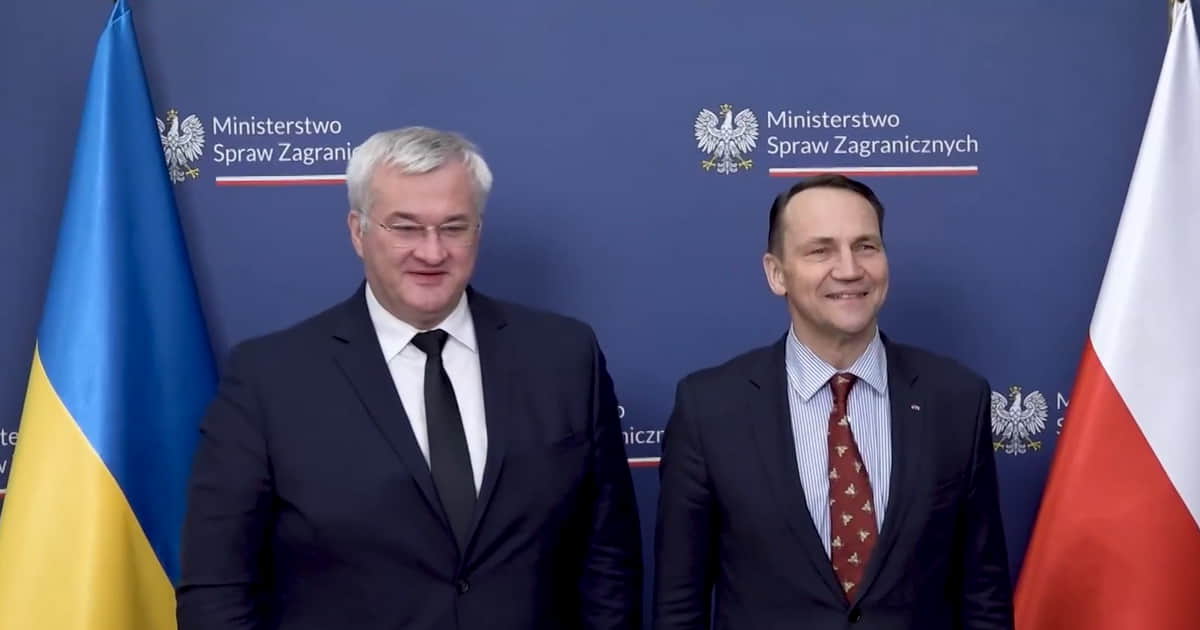Why Ukraine's concessions failed to resolve the historical dispute with Poland

Ukraine and Poland have recently issued a joint statement regarding the exhumation of victims of the Volyn tragedy [The Volyn (Volhynia) tragedy was a series of events that led to the ethnic cleansing of the Polish and Ukrainian populations in 1943 during World War II. It was part of a long-standing rivalry between Ukrainians and Poles in what is now Ukraine's west. Poland considers the Volyn tragedy a genocide of Poles - ed.].
However, the specifics of this agreement appear to place unilateral obligations on Ukraine, according to MP and former head of the Ukrainian Institute of National Remembrance, Volodymyr Viatrovych. Read more in his column - Concessions without reciprocity: What's wrong with Ukraine and Poland's new historical 'compromise.' Viatrovych reminds us that, according to the statement, Kyiv "confirms the absence of obstacles for Polish state institutions and private companies, in cooperation with relevant Ukrainian institutions, to conduct search and exhumation works on the territory of Ukraine in accordance with Ukrainian legislation and declares its readiness to positively consider applications on these issues."
"Not a single word about honouring deceased Ukrainians or their burial sites in Poland. Should Ukrainian graves continue to remain desecrated 'in the name of universal values and in a Christian spirit'?" the columnist expressed indignantly. Advertisement:
He warns that Polish politicians will continue to extract political dividends from this topic. Evidence of this thesis was not long in coming. The former head of the Ukrainian Institute of National Remembrance noted that the same day, Polish authorities presented the statement as their victory, and an opposition representative, the head of the Polish Institute of National Remembrance and simultaneously the presidential candidate from the Law and Justice party (PiS), declared readiness the next day to begin exhumations in Volyn within 24 hours.
"And this despite the fact that no mass burial sites of Poles in Volyn have been discovered for exhumation yet. Moreover, no one ever conducts exhumations in winter due to weather conditions," Viatrovych remarked. Within a week, the Ukrainian gesture of goodwill received the usual response from Polish politicians, the columnist continued.
On 3 December, a draft law was submitted to the Sejm proposing amendments to the Law on the Institute of National Remembrance. The amendment suggests adding a phrase to the article concerning punishment for public promotion of totalitarian regimes: "as well as the ideology of the Organization of Ukrainian Nationalists, the Bandera faction (OUN-B), and the Ukrainian Insurgent Army (UPA), which led to genocide in Volyn and neighbouring regions in 1943-1945." "In other words, Polish politicians aim to condemn the ideology of Ukraine's struggle for independence - a struggle that is ongoing right now, and the outcome of which determines the fate not only of Ukraine but also of Poland," the Ukrainian MP observed.
He is convinced that Ukraine's unilateral concessions do not deter Polish politicians but rather encourage them.
The former head of the Ukrainian Institute of National Remembrance also asserts that the topic of Volyn will resurface in political discussions repeatedly as long as electoral gains can be derived from it.
If you notice an error, select the required text and press Ctrl + Enter to report it to the editors.